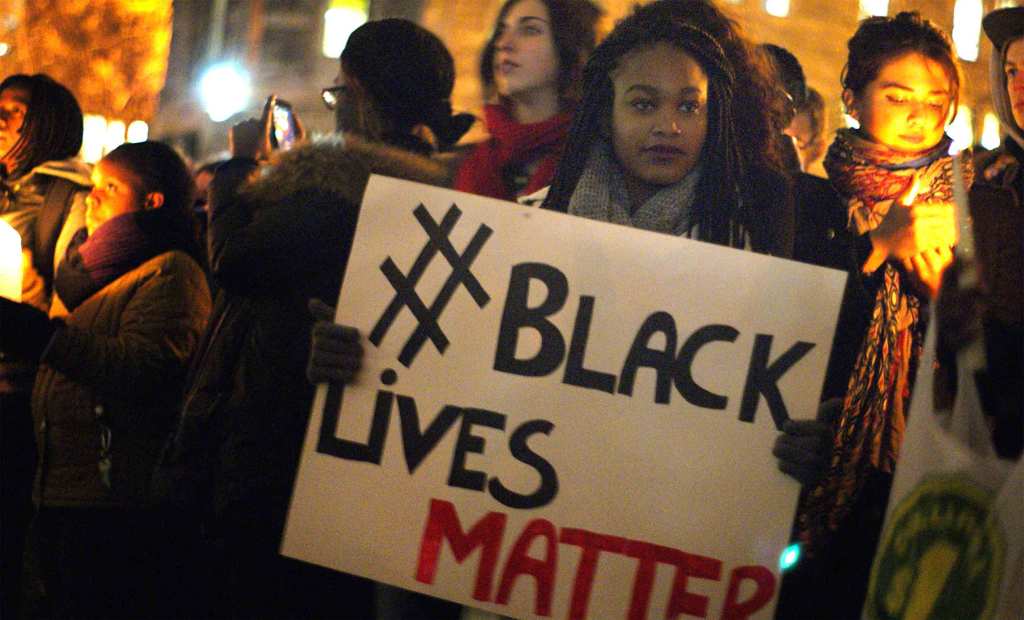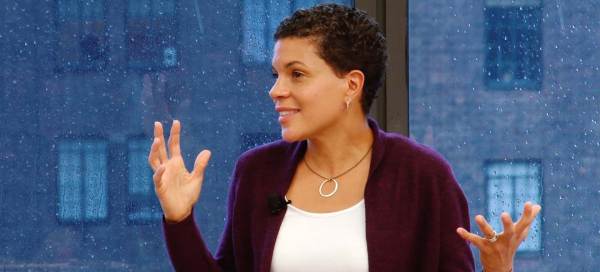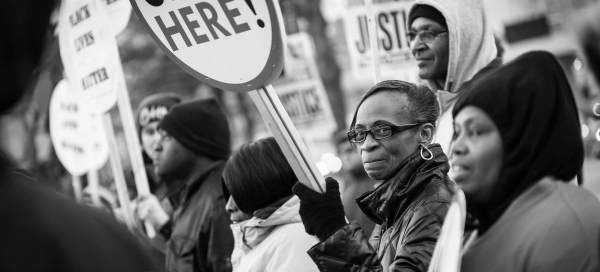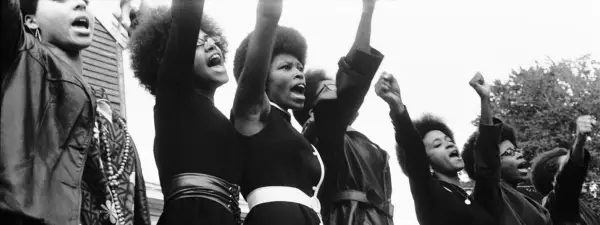 Flickr user Gerry Lauzon, flickr.com/photos/bikeman04/
Flickr user Gerry Lauzon, flickr.com/photos/bikeman04/ We are living in anxious, often frightening times. Earlier this month, the deaths of Philando Castile and Alton Sterling sparked a new round of public protest against the toxic blend of racism, hypermasculinity, and state violence that has taken the lives of too many black men and women and people of color in the US. At one protest in Dallas, a lone gunman killed five police officers—Lorne Ahrens, Michael Krol, Michael J. Smith, Brent Thompson, and Patrick Zamarripa. We’ve seen reductive attempts to frame the murders in Dallas as a confrontation between protesters and law enforcement, but that obscures the larger democratic principles at play: The officers died while protecting the right to freedom of expression and peaceful protest, and are inexorably linked to Philando Castile and Alton Sterling.
These events—added to so many others, including the fatal shootings of three police officers in Baton Rouge on Sunday morning—have the potential to either deepen empathy and understanding among Americans or divide us even more sharply along lines of race, ethnicity, and gender. That’s why now is the time to stand by and amplify movements rooted in love, compassion, and dignity for all people. Now is the time to call for an end to state violence directed at communities of color. And now is the time to advocate for investment in public services—including but not limited to police reform—together with education, health, and employment in communities and for people that have historically had less opportunity and access to all those things.
These are the reasons we support the Movement for Black Lives.
New voices and leadership for a new civil rights movement
Led largely by young black women and men, black immigrants, and queer people of color, the Movement for Black Lives has forged a new national conversation about the intractable legacy of racism, state violence, and state neglect of black communities in the United States—a conversation grounded in those communities’ own experiences. The movement has been both reactive and strategic, calling out injustice and inequality while at the same time offering a vision of a newer and brighter future, one where government is accountable, and communities have the resources they need to thrive.
Shaped by a broad, sophisticated understanding of the interplay of multiple identities, race, and power in the US, the leaders of this decentralized movement are nimble and networked. They bring deft strategic communications and advocacy skills to their work. And they have an innate understanding of how technology can be a tool for social change. This leadership operates in relationship to more established and easily identifiable civil rights and social justice organizations, while transcending their boundaries.
In doing so, these new voices have managed to do what was once considered impossible: They have put a sustained spotlight on the importance of black people’s lives.
What philanthropy can do—and learn
The Movement for Black Lives has created an opportunity for philanthropy to see and learn from new and dynamic forms of social justice leadership and infrastructure. To support and fund this thriving movement, philanthropy itself has had to adapt. Meanwhile, leaders have kept donors’ good intentions in check with candid reminders of how philanthropy can hurt a movement, as well as how it can help. Listening and learning is central to Ford’s approach, as we strive to be a thoughtful, effective social justice funder at this critical time.
By partnering with Borealis Philanthropy, Movement Strategy Center, and Benedict Consulting to found the Black-Led Movement Fund, Ford has made six-year investments in the organizations and networks that compose the Movement for Black Lives. We also seek to complement the important work of philanthropic allies such as the Hill-Snowden Foundation, Solidaire, the NoVo Foundation, the Association of Black Foundation Executives, the Neighborhood Funders Group–Funders for Justice, Anonymous Donors, and many more. As we continue to engage with and learn from the movement, we’re eager to deepen and expand this community of social justice funders. We want to nurture bold experiments and help the movement build the solid infrastructure that will enable it to flourish. As we do so, we believe it’s essential that our funding not dictate or distort the work underway.
We’ll provide long-term support to the Movement for Black Lives, so that these visionary leaders and organizations can continue to cultivate and maintain a movement of young black women and men who are pushing through established boundaries as they seek to realize the promise of equality and justice for all. That is what democracy needs to function—and it’s what the Movement for Black Lives is doing.



